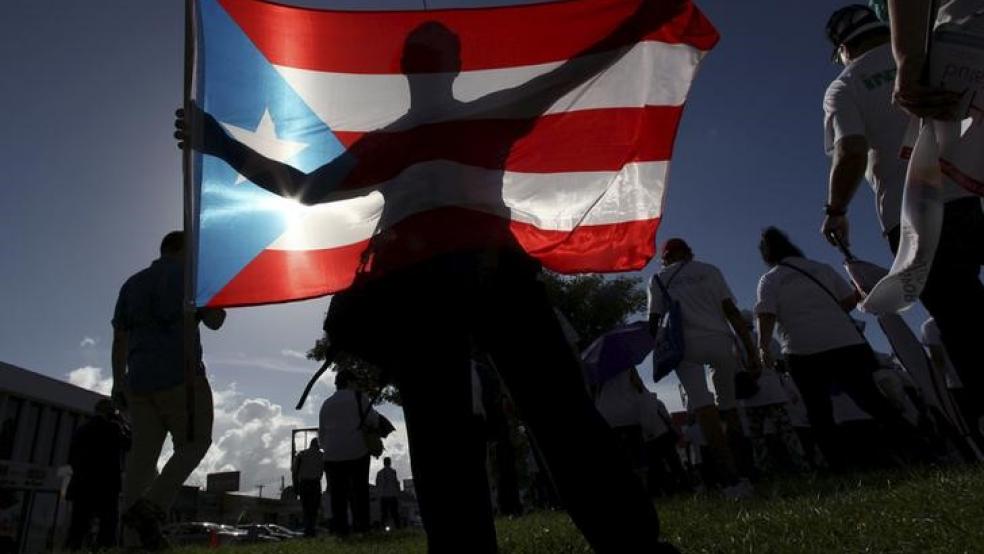(Reuters) - Puerto Rico's restructuring efforts took a setback on Wednesday when talks between its Government Development Bank (GDB) and a group of creditors fell apart with no "mutually acceptable arrangement," according to a statement from the government.
Puerto Rico officials in September proposed restructuring $18 billion of debt due in the coming five years as part of a broad plan to pull the island out of financial crisis.Melba Acosta, head of the GDB, had highlighted the bank as being the next entity from the commonwealth to engage in restructuring negotiations, following utility PREPA. PREPA is still trying to close a deal with bond insurers, after striking deals with bondholders and lenders in September following about a year of talks.The GDB, the debt-strapped U.S. territory's chief fiscal agent, said it will not move forward with an exchange offer for GDB notes proposed earlier with the so-called "Ad Hoc Group" of bond holders. The GDB bondholder group consists of investment funds Brigade, Fir Tree, Solus, Fore Research & Management, Avenue Capital, Candlewood, and Claren Road, sources familiar with the matter previously said.Under discussion had been exchanging notes for notes in The Puerto Rico Infrastructure Financing Authority (PRIFA) which could be backed by oil revenues, a separate source familiar with the situation previously said. According to a term sheet released by the GDB, the bank had proposed for bondholders to buy $750 million in new notes issued by PRIFA and tender the around $850 million GDB notes they held, in exchange for senior guaranteed PRIFA notes. Those notes would have had a 8.5 percent coupon and be issued to yield 10 percent. The GDB said it will now focus on a comprehensive voluntary exchange offer for all creditors. GDB President Melba Acosta said the bank had begun the process of signing non-disclosure agreements with several creditors.Acosta said a voluntary adjustment of the commonwealth’s debt that also allows implementation of measures proposed in a recent economic revitalization plan "is the best way to maximize recoveries for creditors."Height Securities analyst Daniel Hanson said he believed the sticking point was "a sufficiently strong security, and ... the GDB simply has nothing strong enough to offer."Puerto Rico breaks off talks with creditor group

CARLOS BARRIA



